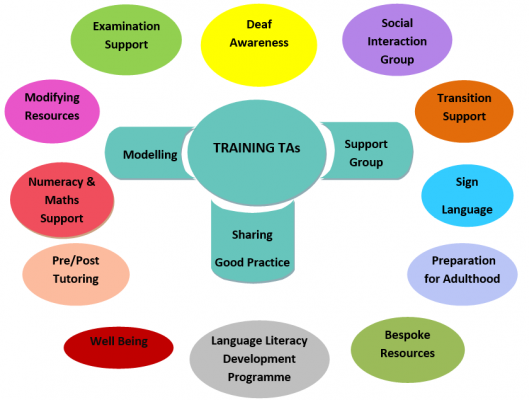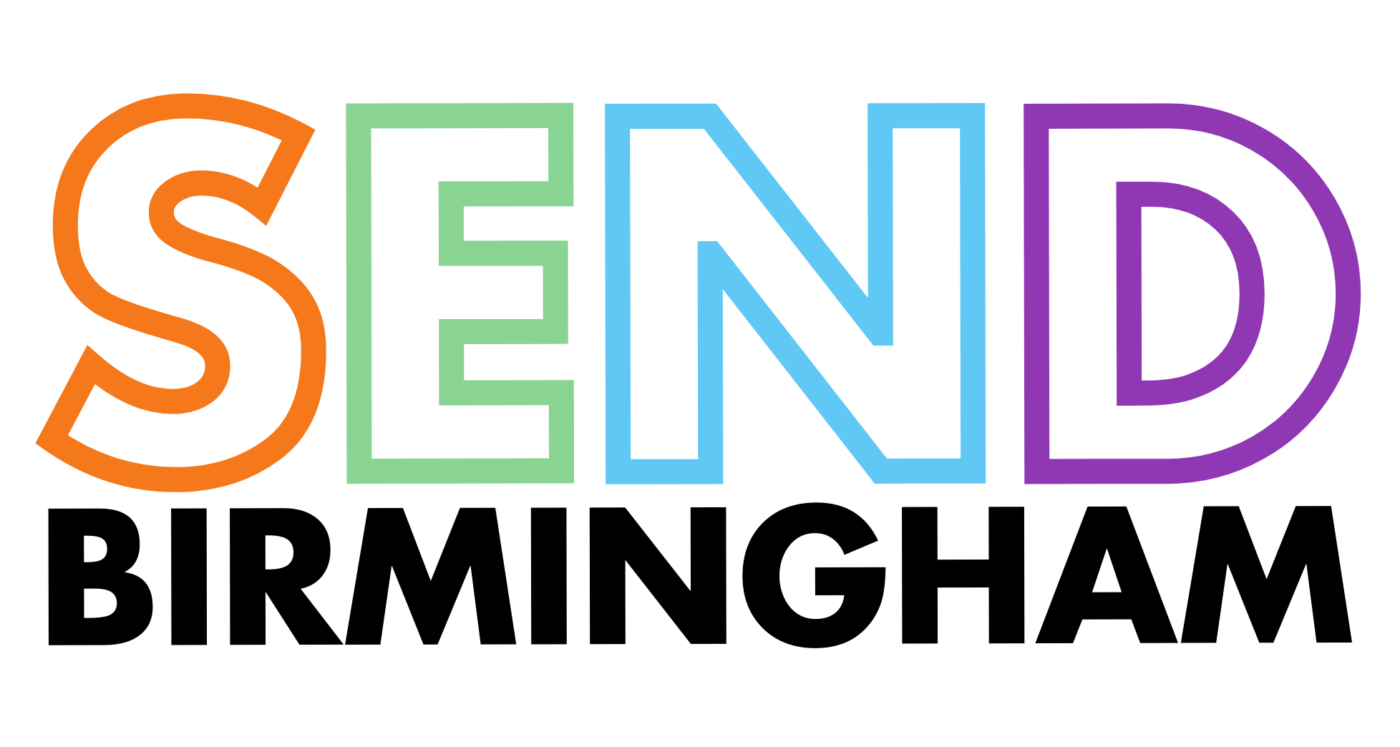Supporting your Child
Fully qualified teachers with additional mandatory qualification in teaching deaf children and young people alongside specialist teaching assistants, technicians and educational audiologists support in a range of settings offering:
- Specialist teaching; assessments and advice
- Provision of equipment, technical, and environmental support
- Bespoke training programmes
- Support for successful transition
- Multi-agency working
- Direct links with health services
- Key working
HST work city wide to support the needs of children with an identified hearing loss who have been referred to the service (see referral section for pupils visited by HST). The team work collaboratively with SENCo’s, teachers, parents, and carers to minimise the impact of a child’s hearing loss on their access to learning, social and emotional development whilst developing independence.
Additionally, HST supports all maintained schools, academies and free schools around phonics screening checks for pupils at KS1 who have a hearing loss.
There is also support for staff with access arrangements for pupils with a hearing loss, participating in the Key Stage 2 national curriculum tests. HST also support staff with access arrangements for students with a hearing loss, participating in Key Stage 4 examinations.
HST provides a range of specialist teaching and support services to primary and secondary aged pupils. These include:
- Provision of a Hearing Support Management Plan
- Peer Awareness Sessions
- Supporting Social and Emotional Needs
- INSET training
- Educational Audiology Support
- Supporting Communication Approaches
- HLTA/TA involvement
When a baby or pre-school child is diagnosed with a hearing loss and has been prescribed hearing aids, The Hearing Support Team (HST) will contact the family to offer advice and to explain the level of support. Bespoke, specialist support is offered to each child and family.
Communicate and Play sessions
HST provide weekly ‘stay and play’ sessions so that parents and their children can meet together. Staff advise on language, communication and listening development and model activities.
Who can attend Communicate and Play?
The sessions are open to families of children with any degree of hearing loss. You may meet families with children diagnosed with mild, moderate, severe and profound hearing losses who may wear hearing aids, bone conduction devices or cochlear implants.
What activities are on offer?
Communicate and Play provides a unique opportunity for parents/carers to meet and talk about their children’s hearing journey with other parents/carers and professionals. The sessions are based around a theme and involve free flow play for children, including access to an outdoor space if the weather permits, focus on development of early listening and communication with lots of singing (Hello song, singing nursery rhymes with the associated actions), snack time and learning some everyday signs from the British Sign Language.
Will I have to pay to attend?
The sessions are free of charge.
Where does Communicate and Play take place?
Communicate and Play sessions are delivered at three locations:
- Castle Vale Children’s Centre, 372 Yatesbury Avenue, Castle Vale, B35 6DH (every other Wednesday at 9:45am – 11:45am)
- Bacchus Road Children’s Centre, 61 Bacchus Road, Winson Green, B18 4QY (every Thursday at 12.45am – 2.30pm)
- Percy Shurmer Nursery Longmore St Balsall Heath B12 9ED (Thursdays 12:45 – 2:30 – term time only)
I would like to attend – what do I need to do?
Inform your teacher of the deaf, or let us know which centre you would like to attend and send us your child’s name and date of birth using our secure admin email address: SsParentEnquiry@Birmingham.gov.uk
Please note that the centres may be closed on a few occasions across the year, which is why we ask you to contact us before attending.
Birmingham Hearing Support Team (HST) is committed to supporting children and young people with hearing losses in special school settings. We offer bespoke training to staff and provide detailed management plans to ensure that all auditory needs are met.
Please note that children and young people who attend special schools for the Deaf are supported by the Teachers of the Deaf within the setting and not the Sensory Support Service, Hearing Support Team. However, the Hearing Support Team Educational Audiologist supports with access to hearing technology.
The Hearing Support Team (HST) works with children and young people as they move through each phase of education. We understand the challenges which a change in setting may bring and aim to facilitate a smooth, positive transition for the pupil, family and settings.
- We support the family to make informed choices about appropriate educational provision for their child
- We provide a range of information to professionals in the new educational setting, so that they are fully informed about the pupil’s individual needs and views
- We lead and attend transition meetings with the pupil, family, current staff and staff from the new setting as well as their new Sensory Support teacher where applicable, to ensure continuity and a successful individualised transition for the pupil
- We organise a transition event for pupils in the Summer Term of Year 6, to prepare for a smooth transition into the next phase of school life and to help them make links with other pupils with hearing loss
- We collect pupil and parent views via questionnaires after transition to new settings and use this information to inform transition events as well as evaluate the support which we offer
Support for post 16 students is provided through HST Traded Services.
On entering a post-16 provision, an initial assessment of a student’s needs is carried out by a Qualified Teacher of the Deaf (QToD), following which a package of support for the student will be set up in liaison with the college.
Hearing Support Team HLTAs and TAs work in partnership with teachers of the deaf, SENCOs, teachers, and teaching assistants in schools to provide additional specialised support for children and young people with a hearing loss.
Through liaison with our teachers of the deaf, from HST and the staff at school, we would identify the pupil’s individual needs and create bespoke packages to support the specific needs of this pupil. The HST, HLTAs, and TAs will model, empower and share good practice with staff in a setting.

For further information, please contact HST referrals

